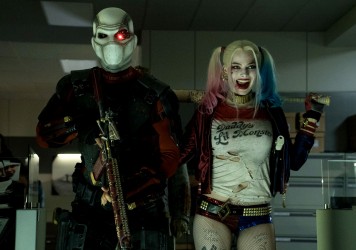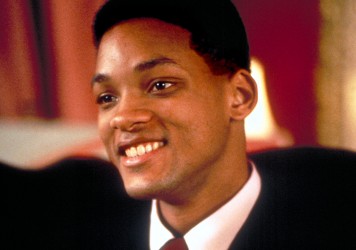The man once self-described as Mr Box Office heads up yet another slushy, contrived dud.
Pre-release trailers for David Frankel’s Collateral Beauty positioned the film as yet another contemporary update of Charles Dickens’ ‘A Christmas Carol’ with a Scrooge archetype visited by angels who are tasked with making him realise the error of his ways.
Grieving father Howard (Will Smith) is called on by the physical embodiments of Death, Love and Time having penned angry letters to them following the death of his young daughter. These manifestations (played by Helen Mirren, Keira Knightley and Jacob Latimore) try to reason him into seeing beauty in the world again.
But what the trailer doesn’t tell you – and this isn’t a spoiler but rather the mad premise of this film – is that the recipients of said letters are in fact not angels but actors hired by Howard’s colleagues. In order to regain control of his advertising company, three terrible friends plan to film him talking to the fake angels then edit them out of the footage as proof he is no longer fit to be their boss.
Misleading marketing wilfully obscuring the profit-driven gaslighting that forms the basic plot is just one clunky attempt by Collateral Beauty to pass itself off as a heartwarming Christmas tale. The characters spend much of the film’s runtime trying to convince the audience – and themselves – that the depressing and insanely insensitive plan they have concocted is somehow just as beneficial to the company as it is to their grieving pal.
Beyond the psychotic awfulness of the scenario, there is something inherently off about the film’s attempt to reconcile the existential topic of grief with the more materialistic world of business affairs. We are told that for the past two years Howard has been going to the office every day but neglecting his work, instead spending all his time in a room entirely dedicated to symbolic domino-based activities. In what world would the total absence of a boss take two years to impact on a company’s business? What sort of company can afford to have an entire room dedicated to dominos? Did anyone suggest counselling?
Such mad nonsense is more disheartening than it is funny, for it forms a painful reminder that according to Hollywood, business and profit now rule the world; its survivalist principles absorbed into even the most escapist of material. Just like the recent Office Christmas Party, this brutal subtext taints every attempt at forging true emotion, every moment of genuine fun.
Only Helen Mirren shines, playing a cool theatre actor sporting a Grateful Dead t-shirt on her downtime, yet able to transform herself into an elegant lady when impersonating Death. This play-acting-within-the-film is exactly the kind of device that should create dozens of opportunities for amusing double entendres and riffs on reality, truth and fantasy. Yet here it feels as though the awkwardness of the script hinders such creative leaps. Mirren is cursed instead with a leaden subplot about a character revealed to be terminally ill.
Others do not emerge so well from the wreckage. According to the film’s saccharine logic, Keira Knightley’s Amy gives a terrible teary performance in the role of Love, while an unconvincing romance with Edward Norton’s Whit doesn’t help. Smith is at his grumbling worst in yet another ‘serious’ role, and Kate Winslet is just about present. But Michael Peña is perhaps the most troubling performer, choosing, for obscure reasons, to call back to his character in Paul Haggis’ oddly similar tale of urban interconnectedness, Crash, in a role that prompts the same kind of martyrdom and pat philosophising.
The film’s anxiety is paired with an intense self-awareness which makes for a few successful and refreshing moments. A scene where an angry Howard lists all of the usual ways people try to rationalise the death of a loved one is almost moving in its perceptiveness. But such instances are few and far between, and they never make up for the general unpleasantness of the experience.
Shot in a flat, TV-style and scored to within an inch of its life, the film ends with no less than two twists, the last one proving to be an ultimate, desperate attempt to romanticise the story, but which only winds up jeopardising the narrative “logic” of everything that has come before. The wisdom bomb we are left with is: at Christmas, it’s important to remember that even though your friends might sometimes try to convince you you’re insane, We Are All Connected.
Published 21 Dec 2016
This looks like it could be pretty terrible but in an entertaining way.
A few joyous moments of unintentionally hilarious dialogue aside, this is truly tedious.
The collateral beauty of watching terrible films is real, but not with this one.

By Elena Lazic
This lurid abomination showcases the very worst of Hollywood’s current comedy set.

DC’s freak show rodeo is an undercooked, cartoonish romp that reveals a great deal about modern moviemaking.

By Henry Heffer
We wend our way back to 1993 to heap praise on Fred Schepisi’s Six Degrees of Separation.